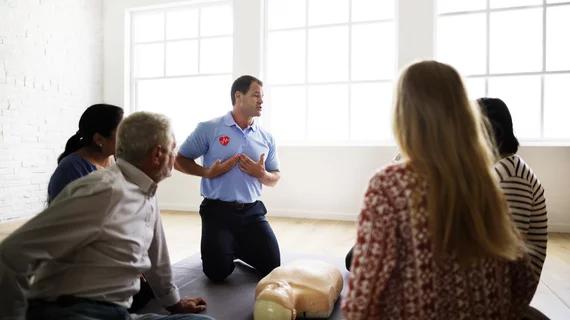Oregon officials push ‘Stop the Bleed’ training in wake of mass shootings
Volunteers in Bend, Ore., are advocating for more widespread “Stop the Bleed” training after back-to-back mass shootings earlier this month left 31 dead, local paper the Bulletin reported August 11.
Stop the Bleed is a national campaign that aims to teach medical professionals and the public alike how to best place tourniquets and bandages in the case of serious bleeding. Petar Hossick, a paramedic and training officer at the Bend Fire Department, said the average response time for emergency personnel in Bend is around six minutes—quicker than the estimated national average—but a person can bleed out in five.
“The public [are] going to be the first, first responders,” Hossick told the Bulletin. “Even if all they can do is slow it down, that can buy us time.”
Hossick and his colleagues have trained some 3,000 people in Central Oregon over the past two years, including nurses and security personnel at nearby schools and colleges. Phillip Au, a retired cardiologist who’s an advocate for Stop the Bleed, said he expects “a crowd” at his next training session because of recent events.
“There’s an interest, unfortunately,” he said. “Because of Ohio. Because of Texas. It’s on everybody’s mind.”
Read the full story below:

